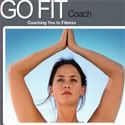
Sometimes the strongest longings for food happen when you're at your weakest point emotionally. Many people turn to food for comfort — consciously or unconsciously — when they're facing a difficult problem or looking to keep themselves occupied.
But emotional eating — eating as a way to suppress or soothe negative emotions, such as stress, anger, anxiety, boredom, sadness and loneliness — can sabotage your weight-loss efforts. Often, emotional eating leads to eating too much food, especially high-calorie, sweet, salty and fatty foods.
The good news is that if you're prone to emotional eating, you can take steps to regain control of your eating habits and get back on track with your weight-loss goals.
The connection between mood and food...
Major life events — such as unemployment, health problems and divorce — and daily life hassles — such as a stressful work commute, bad weather and changes in your normal routine — can trigger emotions that lead to overeating. But why do negative emotions lead to overeating?
Some foods may have seemingly addictive qualities. For example, when you eat enticing foods, such as chocolate, your body releases trace amounts of mood- and satisfaction-elevating hormones. That "reward" may reinforce a preference for foods that are most closely associated with specific feelings. Related to this is the simple fact that the pleasure of eating offsets negative emotions.
Food can also be a distraction. If you're worried about an upcoming event or rethinking an earlier conflict, eating comfort foods may distract you. But the distraction is only temporary. While you're eating, your thoughts focus on the pleasant taste of your comfort food. Unfortunately, when you're done overeating, your attention returns to your worries, and you may now bear the additional burden of guilt about overeating.
How to regain control of your eating habits...
Though strong emotions can trigger cravings for food, you can take steps to control those cravings. To help stop emotional eating, try these suggestions:
* Learn to recognize true hunger. Is your hunger physical or emotional? If you ate just a few hours ago and don't have a rumbling stomach, you're probably not really hungry. Give the craving a few minutes to pass.
* Know your triggers. For the next several days, write down what you eat, how much you eat, when you eat, how you're feeling when you eat and how hungry you are. Over time, you may see patterns emerge that reveal negative eating patterns and triggers to avoid.
* Look elsewhere for comfort. Instead of unwrapping a candy bar, take a walk, treat yourself to a movie, listen to music, read or call a friend. If you think that stress relating to a particular event is nudging you toward the refrigerator, try talking to someone about it to distract yourself. Plan enjoyable events for yourself.
* Don't keep unhealthy foods around. Avoid having an abundance of high-calorie comfort foods in the house. If you feel hungry or blue, postpone the shopping trip for a few hours so that these feelings don't influence your decisions at the store.
* Snack healthy. If you feel the urge to eat between meals, choose a low-fat, low-calorie food, such as fresh fruit, vegetables with fat-free dip or unbuttered popcorn. Or test low-fat, lower calorie versions of your favorite foods to see if they satisfy your craving.
* Eat a balanced diet. If you're not getting enough calories to meet your energy needs, you may be more likely to give in to emotional eating. Try to eat at fairly regular times and don't skip breakfast. Include foods from the basic groups in your meals. Emphasize whole grains, vegetables and fruits, as well as low-fat dairy products and lean protein sources. When you fill up on the basics, you're more likely to feel fuller, longer.
* Exercise regularly and get adequate rest. Your mood is more manageable and your body can more effectively fight stress when it's fit and well rested.
If you give in to emotional eating, forgive yourself and start fresh the next day. Try to learn from the experience, and make a plan for how you can prevent it in the future. Focus on the positive changes you're making in your eating habits and give yourself credit for making changes that ensure better health.































